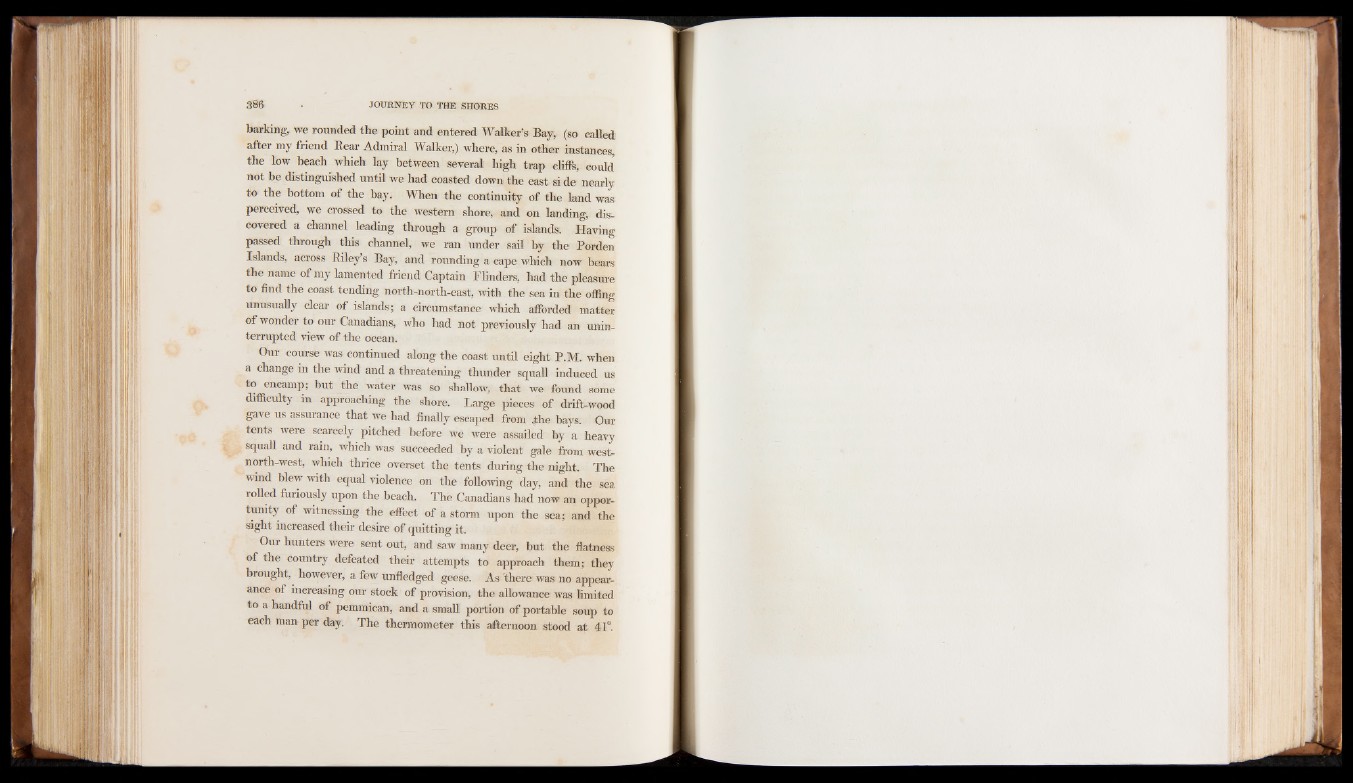
barking,, we rounded the point and entered Walker’s Bay, (so called
after my friend Bear Admiral Walker,) where, as in other instances,
the low beach which lay between several high trap cliffs, could'
not be distinguished until we had coasted down the east si de nearly
to the bottom of the bay. When the continuity of the land was
perceived, we crossed to the western shore, and on landing, discovered
a channel leading through a group of islands. Having
passed through this channel, we ran under sail by the Borden
Islands, across Riley’s Bay, and rounding a cape which now bears
the name of my lamented friend Captain Flinders, had the pleasure
to find the coast tending north-north-east, with the sea in the offing
unusually clear of islands; a circumstance which afforded matter
of wonder to our Canadians, who had not previously had an uninterrupted
view of the ocean.
Our course was continued along the coast until eight P.M. when
a change in the wind and a threatening thunder squall induced us
to encamp; but the water was so shallow, that we found some
difficulty in approaching the shore. Large pieces of drift-wood
gave us assurance that we had finally escaped from ihe bays. Our
tents were scarcely pitched before we were assailed by a heavy
squall and rain, which was succeeded by a violent gale from west-
north-west, which thrice overset the tents during the night. The
wind blew with equal violence on the following day, and the sea
rolled furiously upon the beach. The Canadians had now an opportunity
of witnessing the effect of a storm upon the sea; and the
sight increased their desire of quitting it.
Our hunters were sent out, and saw many deer, but the flatness
of the country defeated their attempts to approach them; they
brought, however, a few unfledged geese. As 'there was no appearance
of increasing our stock of provision, the allowance was limited
to a handful of pemmican, and a small portion of portable soup to
each man per day. The thermometer this afternoon stood at 41°.